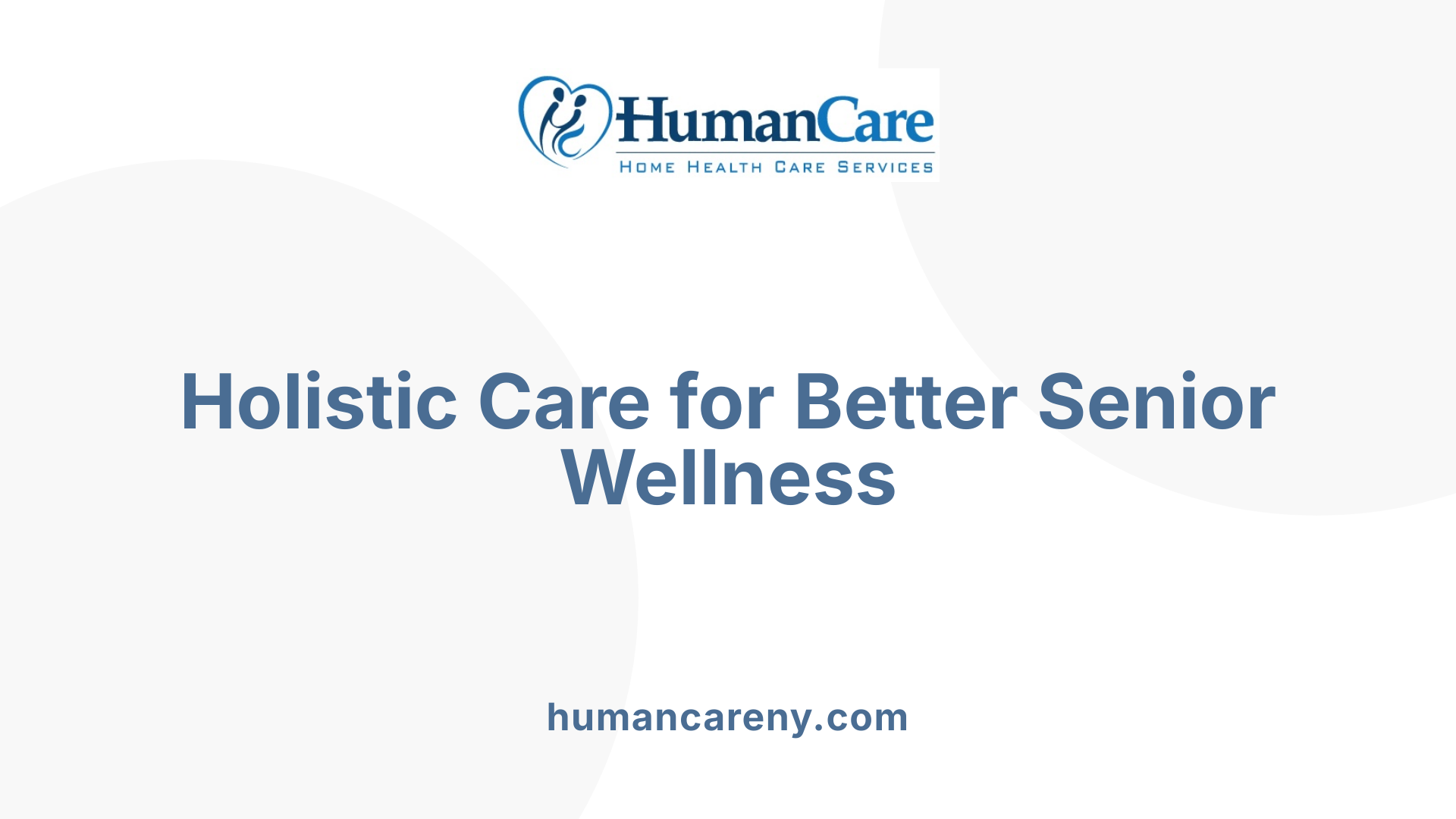Understanding the Vital Role of Companion Care
As the population ages, ensuring the well-being of elderly individuals—particularly those with chronic health conditions—becomes a priority. Companion care emerges as a comprehensive solution, addressing not only medical needs but also emotional and social well-being. This article explores the multifaceted benefits of companion care, illustrating how it boosts physical health, mental resilience, and emotional stability, ultimately improving seniors' quality of life.
Holistic Support for Seniors with Chronic Conditions

What are the benefits of companion care for elderly individuals with chronic conditions?
Companion care plays a vital role in improving the lives of seniors dealing with chronic health issues. It provides practical support with daily routines such as meal preparation, light housekeeping, transportation to medical appointments, and medication reminders. These assistance tasks help seniors maintain their independence while reducing the risk of accidents or health complications.
Beyond practical help, companion care offers emotional support and encourages meaningful social engagement. Regular interactions with a compassionate companion combat loneliness and social isolation—factors strongly linked to depression, cognitive decline, and heart disease. Engaged conversations, participation in hobbies, and physical activities promoted by companions can lift mood, stimulate mental functions, and foster a sense of purpose.
Safety and well-being are further enhanced as companions monitor for signs of health deterioration or elder abuse, offering early intervention and reassurance. This consistent support creates a predictable routine, which helps seniors feel more secure and less anxious.
Overall, companion care helps seniors with chronic conditions lead healthier, more independent lives. It nurtures emotional resilience, encourages activity, and reinforces a connection to their community—improving quality of life and supporting long-term wellness.
Enhancing Mental, Emotional, and Physical Well-Being

How does companion care enhance mental, emotional, and physical health for seniors with ongoing health issues?
Companion care plays a vital role in improving the overall health of seniors dealing with chronic conditions or ongoing health concerns. Regular social interactions provide much-needed emotional support, reducing feelings of loneliness and depression that often accompany health challenges.
Engagement through conversations, hobbies, or community outings helps seniors feel connected and purposeful, fostering emotional stability. This mental stimulation is beneficial for maintaining cognitive functions and can delay or prevent further cognitive decline.
Physical well-being is also supported by companion care through encouragement of light exercises, walks, or participation in household tasks. These activities promote mobility, strength, and balance, which can decrease the risk of falls and support independence.
Companions act as vigilant observers, recognizing early signs of health deteriorations or emergencies, which ensures timely medical intervention. They also help comfort seniors during difficult transitions, such as loss of loved ones or adapting to new health routines.
Overall, the holistic approach of companion care nurtures a safe, engaging, and supportive environment. This environment helps seniors maintain their mental resilience, emotional stability, and physical health, even as they manage ongoing health issues, leading to a better quality of life and greater independence.
Reducing Loneliness and Supporting Emotional Health

How frequently do social interactions occur in companion care, and what is their impact?
In companion care, regular and consistent social interactions are a fundamental aspect. These interactions can happen daily or multiple times a week, depending on individual needs. Frequent social engagement plays a crucial role in improving emotional health by creating predictable routines that foster a sense of stability and security.
When seniors engage often with caregivers, their feelings of loneliness tend to decrease significantly. This regular contact helps seniors feel valued, heard, and connected, which boosts their mood and promotes feelings of belonging.
How are personalized activities and emotional support used to enhance seniors’ well-being?
Companion care is tailored specifically to each senior's preferences, hobbies, and emotional needs. Caregivers may organize activities like reading, puzzles, walks, or shared hobbies that the senior enjoys. Such personalized activities stimulate cognitive functions and lift spirits.
Emotional support is integral; caregivers listen empathetically, share conversations, and offer reassurance during difficult times. This personalized approach helps seniors manage stress, grief, or anxiety associated with health issues or life changes.
What are the ways companion care helps prevent social isolation and its associated health risks?
By maintaining a consistent presence, companion care effectively reduces social isolation—a significant risk factor for depression, heart disease, cognitive decline, and other health problems.
Caregivers encourage participation in community events or virtual social groups, broadening seniors’ social networks. They also facilitate transportation to social outings or medical appointments, fostering ongoing connections.
Engaging in meaningful conversations and activities gives seniors a purpose, which is essential for mental health. As a result, seniors experience better emotional well-being, improved mood, and a more active lifestyle.
| Aspect | Detail | Effect |
|---|---|---|
| Social frequency | Daily or multiple times weekly | Builds routine and reduces loneliness |
| Tailored activities | Hobbies, conversations, outings | Enhances engagement and mental health |
| Emotional support | Empathy, reassurance, companionship | Manages anxiety, grief, and depression |
| Social inclusion strategies | Community participation, technology use | Expands support networks |
| Health risk reduction | Combating isolation-related illnesses | Decreases risks of depression, heart issues, cognitive decline |
Companion care’s personalized, consistent approach creates a supportive environment that significantly mitigates the adverse effects of social isolation. Through regular interactions and tailored emotional support, it fosters a healthier, happier life for seniors, particularly those living with chronic health conditions.
Practical Assistance and Its Impact on Daily Life

What practical daily assistance does companion care provide, and how does it affect the quality of life of seniors?
Companion care offers essential support with everyday activities that help seniors maintain their independence and ensure safety at home. These practical services include meal preparation, light housekeeping, medication reminders, and transportation to medical appointments or social outings. By taking over routine chores and errands, caregivers reduce the physical and mental burden on seniors, allowing them to focus on enjoying their time.
This practical assistance also plays a crucial role in enhancing emotional well-being. When seniors are supported with daily tasks, they experience less stress and anxiety related to household responsibilities and health management. Regular social interactions during caregiving visits foster companionship, reducing feelings of loneliness and social isolation.
Engagement in hobbies, recreational activities, or mental exercises such as puzzles and games with a caregiver stimulates cognitive functions and lifts mood. These daily interactions promote a sense of purpose and belonging, which are vital for mental health.
In addition, consistent companionship encourages seniors to stay active physically through walks and light exercises, bolstering their physical health and immune system. It also helps identify early signs of health issues, supporting timely interventions.
Overall, the combination of practical help and emotional support provided by companion care creates a nurturing environment. It preserves seniors' autonomy, enhances their mental and physical health, and significantly improves their overall quality of life, enabling them to live longer, healthier, and more fulfilling lives in their own homes.
Components and Advantages of Companion Care

What does companion care typically involve, and what are its advantages for elderly individuals with chronic health conditions?
Companion care primarily focuses on providing non-medical support through social interaction and emotional companionship. Caregivers assist with daily routines such as preparing meals, light housekeeping, running errands, and offering transportation to appointments or social outings.
This service helps reduce feelings of loneliness and social isolation, which are linked to higher risks of depression, heart problems, and cognitive decline. Engaging seniors in conversations, hobbies, and physical activities not only boosts their mood but also stimulates mental and physical health.
For seniors facing chronic health issues, companion care offers tailored support that promotes independence and enhances overall well-being. It encourages regular activity, ensures medication reminders, and provides a safe environment for them to remain in their own homes longer.
Benefits for seniors and their families
Companion care contributes significantly to a senior’s quality of life by fostering social connections and emotional stability. It helps alleviate stress and anxiety related to health concerns or life transitions. Regular visits and meaningful interactions can combat depression and improve mood.
For families, companion care offers peace of mind, knowing their loved ones are receiving personalized support and safety monitoring. It eases caregiver burden by handling routine tasks, allowing family members to focus on emotional connection rather than daily chores.
Customization and safety considerations
Care plans are highly adaptable, based on each senior’s specific needs and preferences. Whether it’s assistance with mobility, engaging in hobbies, or safety checks, services can be tailored accordingly.
Safety is a priority; caregivers are trained to notice signs of elder abuse or health deterioration, ensuring prompt action and a secure environment. Ongoing assessment and adjustment of care plans maintain relevance and effectiveness.
In summary, companion care offers a holistic approach that enhances emotional, mental, and physical health, helping seniors enjoy a higher quality of life with personalized, safe, and supportive services.
Embracing the Benefits of Companion Care
In summary, companion care plays a crucial role in improving the lives of elderly individuals with chronic conditions. It addresses physical, emotional, and social needs, promoting independence, safety, and well-being. With its comprehensive approach, companion care not only enriches daily life but also helps seniors enjoy a higher quality of life, fostering happiness and emotional resilience such that they remain active, engaged, and valued members of their communities. Embracing companion care is a meaningful step toward ensuring our seniors can age with dignity and purpose.
References
- Companion Care Benefits for Seniors
- How Companion Care Improves Emotional Well-Being in ...
- 5 Benefits Of Companion Care For Seniors
- Social and Emotional Benefits of Companion Care Services
- Enriching Lives Through Elderly Companion Care
- What is Companion Care? Understanding Senior Support ...
- The Essential Role of Companionship in Elderly Care
- How Companion Care Can Help Combat Senior Isolation ...
- Exploration of Perceived Psychosocial Benefits of Senior ...
- Companion Care for Seniors: Overcoming Loneliness at ...



